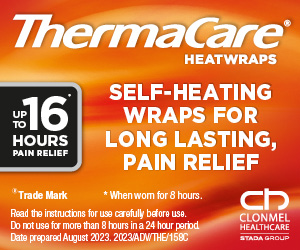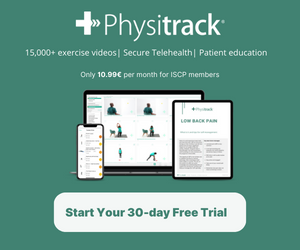Advanced Practice Advocacy Update
ISCP Encourages members to share and support Advanced Practice Physiotherapy campaign with infographics and new position statement
As part of our Advanced Practice Physiotherapy (APP) Project, we have developed 3 infographics for you to share to support our campaign
1) About Advanced Practice.
This infographic highlights our call for APP by explaining;
- What is it?
- What do they do?
- What are their tasks?
Advanced practice is a level of practice rather than a specific role. It reflects a high level of clinical autonomy and the use of advanced critical thinking to deliver care to patients with complex needs safely and competently. APP has the potential to impact positively on a number of stakeholders. Primarily, patients’ benefit directly due to the use of enhanced skills of diagnosis, assessment, and treatment that are underpinned by effective and efficient clinical reasoning and a strong critical awareness and understanding of relevant research. Physiotherapists benefit by having their advanced level of skills and knowledge recognised, thus improving their employability and own personal and professional development. APPs are amongst the most highly trained health professionals nationally and are consistently delivering excellent services, both to the patient and the health service.
In Ireland, APP is not a salaried clinical grade, as it is in other jurisdictions such as the UK and Australia. APPs are also limited in the service they can provide compared to other jurisdictions, as legislatively they cannot order diagnostic imaging or prescribe medication. The legislative provision of these duties internationally has been linked with increased economic efficiencies for the health services as a result of a reduced patient journey, fewer GP and consultant doctor appointments, decreased length of hospital stay, reduced readmission rates and decreased use of resources. The profession is supported through the Irish Society of Chartered Physiotherapists to safely and effectively deliver APP services on a national and local level. The ISCP continues to advocate to the HSE and the DoH for the delivery of APP as a clinical grade.
2) APP as referrers for Ionising Radiation
This infographic shares evidence on our call for legislative change to allow physiotherapists refer for X-rays.
At present in Ireland, physiotherapists are not permitted to refer patients directly for medical radiological procedures, as they are not included in the legislation governing referral for these investigations. This results in delays for the patients who require these investigations, who as a result, must then be referred to a medical practitioner or await the sign-off of a referral prepared by physiotherapist for a medical practitioner. Stakeholders such as GPs, patients, and consultant doctors support APPs in advanced roles being able to refer for medical radiological procedures. The recent transfer of regulation from the ISCP, as the delegated authority on behalf of the Minister, to that of the statutory regulator – CORU and the supportive professional frameworks developed by the ISCP, provide a safe and effective mechanism to enhance scope of the physiotherapy profession. This includes the ability for physiotherapists to refer for radiology. Including physiotherapists in the legislation permitting professions to refer patients for medical radiological procedures will result in more streamlined pathways. Physiotherapists as referrers will increase efficiency of services by reducing both the number of patient contacts and wait time length thereby shortening the patient journey. In addition to benefit for the patient, this will result in cost savings to the health service and greater efficiency.
APP diagnostic accuracy is comparable to the diagnostic accuracy of consultant surgeons and significantly better than those of other healthcare professionals including nurses and physicians assistants. Research has shown that physiotherapy referrals for MRI are more likely to be positive compared to GP referrals and recommended that improved efficiency and decreased workload would result from diagnostic imaging referral from APP rather than GPs.
Physiotherapists have consistently demonstrated lower referral rates for X-ray and MRI than junior doctors, resulting in less radiological exposure for patients and savings to the health service, when maintaining high levels of diagnostic accuracy. It has been calculated that 5 hours per APP per month nationally is spent in triage clinic waiting to ask a medical practitioner to order/ review an X-ray. Across the whole of the national musculoskeletal initiative this accounts for a loss of €9000 per month, or a potential 300 new patient slots.
This results in delays in care and limits the potential to adopt new ways of working. It also impedes workflows both for the APP and also the workflow of the referrer, who must take time away from their own patient to order medical radiological procedures for a patient they have not assessed. It makes the patient care pathway unnecessarily more complex, involving more healthcare practitioners.
We have also developed a position statement on ionising radiation, available here. Please use this document to advocate to hospital management, local TDs and whoever else you believe may help in the campaign to change the legislation.
3) What prevents physiotherapists in Ireland from working to the full capacity in Advanced Practice
This infographic outlines the barriers faced by Advcanced Practice Physiotherapists in working to the full capacity. This includes:
-
Impeded in fully working within their advanced scope of practice compared to their international colleagues
-
Limited in the service they can provide compared to those in other jurisdictions, as legislatively they cannot order diagnostic imaging or prescribe medication
For more information on the Advanced Practice Project contact Dr. Marie Ó Mír at [email protected]
View the report at https://www.iscp.ie/news/ISCP-Launch-Advanced-Practice-Physiotherapy-Report



